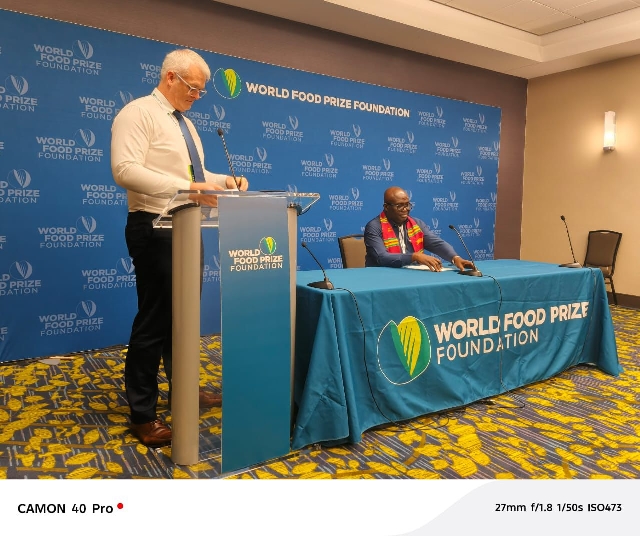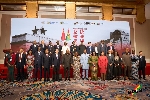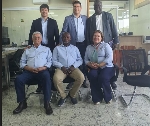Ghana prioritising agro-processing to boost jobs and cut food imports-Agric Minister tells WFP
 Mr Eric Opoku at WFP programme in USA
Mr Eric Opoku at WFP programme in USA
Minister for Food and Agriculture, Mr Eric Opoku, has reaffirmed the government’s commitment to scaling up agricultural processing as part of efforts to reduce food imports, create jobs, and stabilise the local currency.
Addressing international journalists during the 2025 World Food Prize(WFP) event in Des Moines, Iowa, Mr. Opoku said Ghana remains the second-largest producer of cassava globally, and the government is determined to leverage that achievement to strengthen agro-industrial growth.
“Facts and records available to us indicate that Ghana is the second-largest producer of cassava globally, and that’s something to be proud of,” the minister said.
“Our goal is to add value to our raw materials because when you look at Ghana’s production levels, you wouldn’t think our farmers are poor.
The challenge is that we export raw materials and earn very little, only to buy back finished products at higher prices.”
He explained that government, through several initiatives — including the BRIDGE Initiative, a partnership with the Mastercard Foundation — is supporting small- and medium-scale processors with low-interest loans, credit guarantees, and insurance packages to move “from potential to profitability.”
Mr. Opoku added that under the Feed Ghana Programme, the government is implementing intentional agricultural policies to enhance food production, empower women, and promote local processing.
“Women constitute about 52 percent of Ghana’s agricultural labour force, and most of them are in food processing.
By investing in agro-processing, we are not only empowering women but also ensuring food security and reducing our import bill,” he said.
Ghana, according to the Minister, spends about US$350 million annually on sugar imports, a situation the government is determined to change through local production of sugarcane and stevia.
“We are investing in the cultivation of sugarcane and the processing of sugar locally to reduce the pressure on our currency and create a sustainable exchange regime that supports business growth,” he noted.
Mr. Opoku revealed that a sugar processing factory has already been established in Ghana, but efforts are underway to operationalise it soon, following renewed commitment from the President.
On irrigation, he said the government is expanding irrigation infrastructure to ensure year-round farming and a consistent supply of raw materials for processing industries.
Touching on illegal mining, the Minister lamented the environmental degradation caused by the practice and urged a shift toward sustainable resource utilisation.
“Nature has blessed Ghana with gold, but illegal mining is destroying our environment.
We need to balance resource exploitation with sustainability,” he stressed.
Mr. Opoku called on investors to show greater confidence in Ghana’s agribusiness sector, assuring them of the government’s readiness to create a conducive environment for investment.
“Entrepreneurship involves risk management. As policymakers, we are committed to delivering results within our mandate, and we expect our partners in the business community to share that urgency and work with us to actualise these projects,” he said.
The Minister concluded that agro-processing remains the key to Ghana’s economic transformation, job creation, and foreign exchange stability, urging both local and foreign investors to support the country’s industrial agriculture agenda.
Source: Classfmonline.com/Cecil Mensah
Trending Business

GIPC CEO promotes Ghana's EV investments in China
16:47
DVLA CEO pays surprise visit to Plaspack PVTS, announces plans for new ultra centre in La
08:35
Finance Minister engages IFC to boost Ghana’s agricultural transformation
06:18
Asiedu Nketia pledges commitment to Keta Port Project
14:08
ECG saves $300 million after review of non-performing contracts– Energy Minister
12:49
E&P finalises settlement with Azumah Australia, concludes ownership dispute
06:55
GOPPA hails gov't’s visionary oil palm policy to create over 500,000 jobs
17:30
Parliamentary Select Committee on Labour commends industries for job creation
13:52
J.A. Plant Pool refutes Attorney-General’s claims of overpayment in DRIP contract
12:12
Ghana, Brazil deepen agricultural cooperation as Ambassador Namoale courts investment for livestock sector
17:24




